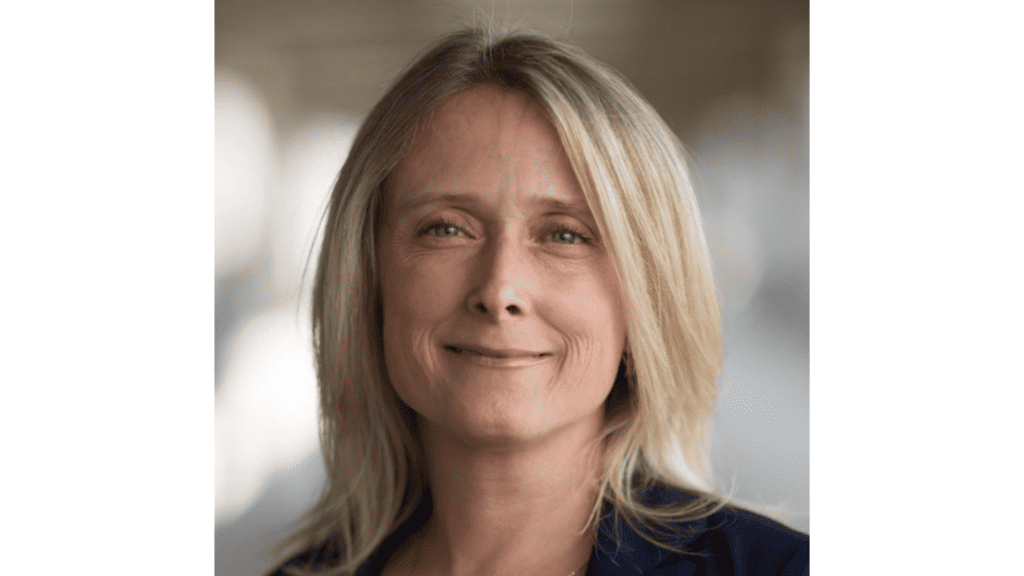Melissa Troester, Ph.D., found her way to breast cancer research through a liberal arts education, starting out as a chemistry student with a minor in philosophy. As she studied medical ethics, she became interested in the way data – specifically biomarker data – was being interpreted and the complexity of understanding that data in the context of social structures.
Her experiences have led her to take an epidemiological approach to understanding the drivers of breast cancer disparities, and how interventions at different levels are key to making impactful and long-lasting change.
Dr. Troester was recently named a Komen Scholar – an advisory group of distinguished leaders in breast cancer research, clinical practice, public health, advocacy and other relevant fields, who provide expertise and guidance to Susan G. Komen on research and other mission programs. She spoke to Komen about her research.

Q: How has your background in epidemiology given you a unique approach to studying disparities?
A: My research is focused on understanding why patients are having different experiences even when they have the same disease. We know that there are components of disparities that penetrate to the cellular level, but a lot of differences stem from cultural or structural influences. I believe having a holistic view and understanding disparities across multiple levels of investigation is a complex problem that requires an interdisciplinary approach.
I’m using epidemiology to think about the comparisons we make, and how to draw the right conclusions. How do we create or utilize methods that are optimized for the research question we’re trying to ask? One of the questions being, “What are the best conceptual models for understanding disparities?”
Q: How has your lab and research team incorporated an interdisciplinary approach?
A: Our studies include equal numbers of Black and non-Black women and equal numbers of younger and older women – because Black women and young women tend not to be well represented in studies. We’re putting real world data together with our insights from biology, chemistry and mathematics, to make conclusions about the causes of health disparities we’re seeing in breast cancer outcomes.
Q: You recently received a first-of-its-kind grant from Susan G. Komen to collaborate with researchers at Duke University to study drivers of disparities. What kinds of things are you studying?
A: We’re looking at social factors and stress and how those might impact breast cancer outcomes, particularly in Black women. We’re also looking at how those factors impact breast cancer metastasis and death.
We think there has to be a multi-level response to achieve equity in breast cancer outcomes: there’s the clinical response, there’s the public health response, and there’s the policy level response. Some of the factors that cause stress in our populations and contribute to health outcomes are structural, and relate to policy decisions. Historical policies, for example, have led to structural racism in this country that influences socioeconomic dynamics and contributes to poor health outcomes. The clinical response usually entails actions at the cellular or tissue level, that result in a change at the individual level. A change in treatment type, or treatment sequence is one example. As you expand from the individual level to making changes on a population level, and then again on a structural level, the interventions needed become more complex and require more partners. I think some of the most impactful work to address breast cancer disparities is also the most challenging as it involves structural and population level changes to address health disparities.
Q: Do you have partnerships with other departments at UNC to pursue the different levels of intervention?
A: We do. I’m in the school of public health and many of our training activities are interdigitated with other disciplines. We have students with a well-defined methods curriculum collaborating with computer scientists to analyze data for this study. We engage with individuals who do research on ethics. We look at mathematicians who can help us model the disease, social epidemiologists to understand social interactions in populations. We look to engage collaborators from a wide range of disciplines because we can’t solve this problem with one set of tools, especially when interventions are needed at the population or structural level to induce change for the better throughout a system.
*Dr. Troester is a Professor of Epidemiology at the UNC Gillings School of Global Public Health and Pathology and Laboratory Medicine at UNC School of Medicine, Director of the UNC Center for Environmental Health and Susceptibility, and co-Director of the UNC Lineberger Comprehensive Cancer Center’s Cancer Epidemiology Program



